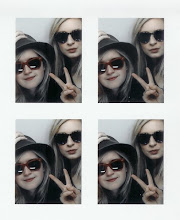Dr. Chris van Tulleken is no ordinary doctor. He has taken part in a televised race to the magnetic North Pole, led expeditions to the Himalayas and most recently, stuck an 8 inch needle through both his cheeks in an experiment with his twin brother for their Channel 4 master-piece ‘Medicine Men Go Wild’. Vicarious speaks to him about how life in London compares to life amongst indigenous healers, tribal people and alcoholic wife beaters.
Chris and his twin brother, Xand, set off on a journey to the most challenging environments on the planet to investigate how people survive without modern medicine, ready and unafraid to try out local remedies for disease in the name of good television. In the process of making ‘Medicine Men’ Chris van Tulleken has tried the Congo brand of Viagra provided by the Bayaka pygmies, experimented with halluconigenics with the Shamen, used the power of his mind to conquer pain with religious men in Kuala Lumpur and eaten walrus in Chukotka. As difficult as these experiences were, Chris was determined to embrace every minute of it: “I remember my first few trips into the wilderness into northern Canada or in northern Vietnam with indigenous people and having a very very bad time indeed and being very unhappy about a lot of it and being extremely cold and tired and wet and hungry and desperately wanting to get back. However, I also remember the sense of getting back and immediately wanting to leave again and I promised myself after those first trips that I would make a very conscious effort to enjoy even the worst times of being away.” Chris’ piece of advice to travellers is to embrace and “enjoy it even when you are having endless bouts of diarrhea and vomiting.”
Yet while Chris embraced his time living in the remotest corners of the earth, he is keen to stress that life away from the hub of the city is not as romantic as it sounds: “you will notice I’ve come back to live in a two bed flat in London- I haven’t got eating to nuts and grubs and berries and nor would I need to.” Indeed, apart from the physical discomforts like “sleeping on the floor and being eaten by ants,” there are more serious negatives to tribal life in remote, often endangered places. “What I really hate,” Chris complains, “is that sometimes I sound rather glib and simple and rather saccharin about tribal people and the romance of tribal people. A lot of what being a modern indigenous hunter-gatherer is all about being displaced, depressed, repressed, oppressed, raped, killed, having your land taken away and being the most marginalised people on earth.”
“You appreciate London an awful lot more when you go and live in a slightly challenging environment for a time,” says Chris is in his polite English manner (though he is half-Canadian). “By any unit of measure people in London are the healthiest people in the world. By the things that are easy to measure, we live longer, we live better, we have a high quality of life. We are not as unhappy as everyone says we are.” Despite the fact that the people of Chukotka, who featured on ‘Medicine Men’ had healthier hearts than Londoners, Chris reveals that on the television programme he was unable to convey just how unhealthy the rest of the population of Chukotka were: “We couldn’t say that there were high levels of alcoholism and that domestic violence levels were appallingly high, that quite a lot of the village didn’t eat whale (a diet known to maintain a healthy heart) and just ate processed food… in television you are forced to tell limited truths, which is that those of them that eat whales have very healthy hearts. We don’t say that the rest of them might be alcoholic wife beaters!”
Regardless of the relative merits of big city life, Chris concludes that his experiences have shown him “what people have known for a very long time that very complicated, sophisticated Western life is unhealthy in a lot of ways that may be psychologically or physically.” Indeed, when Vicarious mentions that student halls in London are some of the most uninhabitable places on earth and that students get ill very often, Chris responds that “in a way you are going through your own sort of Middle Ages there, with over-crowding, poor diet, poor hygiene and a lot of drinking. But then you come out the other end get a job and buy a flat and get married and have some kids and life evens out when you stop swapping saliva with 5 people per week you become healthier.”
In short, “ours isn’t the only way of doing things.” In fact, Chris has a lot of respect for indigenous healers. “With all this indigenous healing,” he says, “when it gets exported to the west via anthropologists and hippies and travellers, a lot of pseudo-spirituality is added that simply isn’t, in my experience, present when you are in a rainforest with a sick child who needs treating. The Shamans in Peru or the Ngaga healers in the Congo were very practical, pragmatic and sensible people. They were happy to use any medicine we had that might work in the same way we were happy to use any they had that might work.” Being away from western medicine and its hospitals, “you realise there are more subtleties to being a doctor than just turning up with a bag full of drugs.”
MK




No comments:
Post a Comment
Tell us what you think!